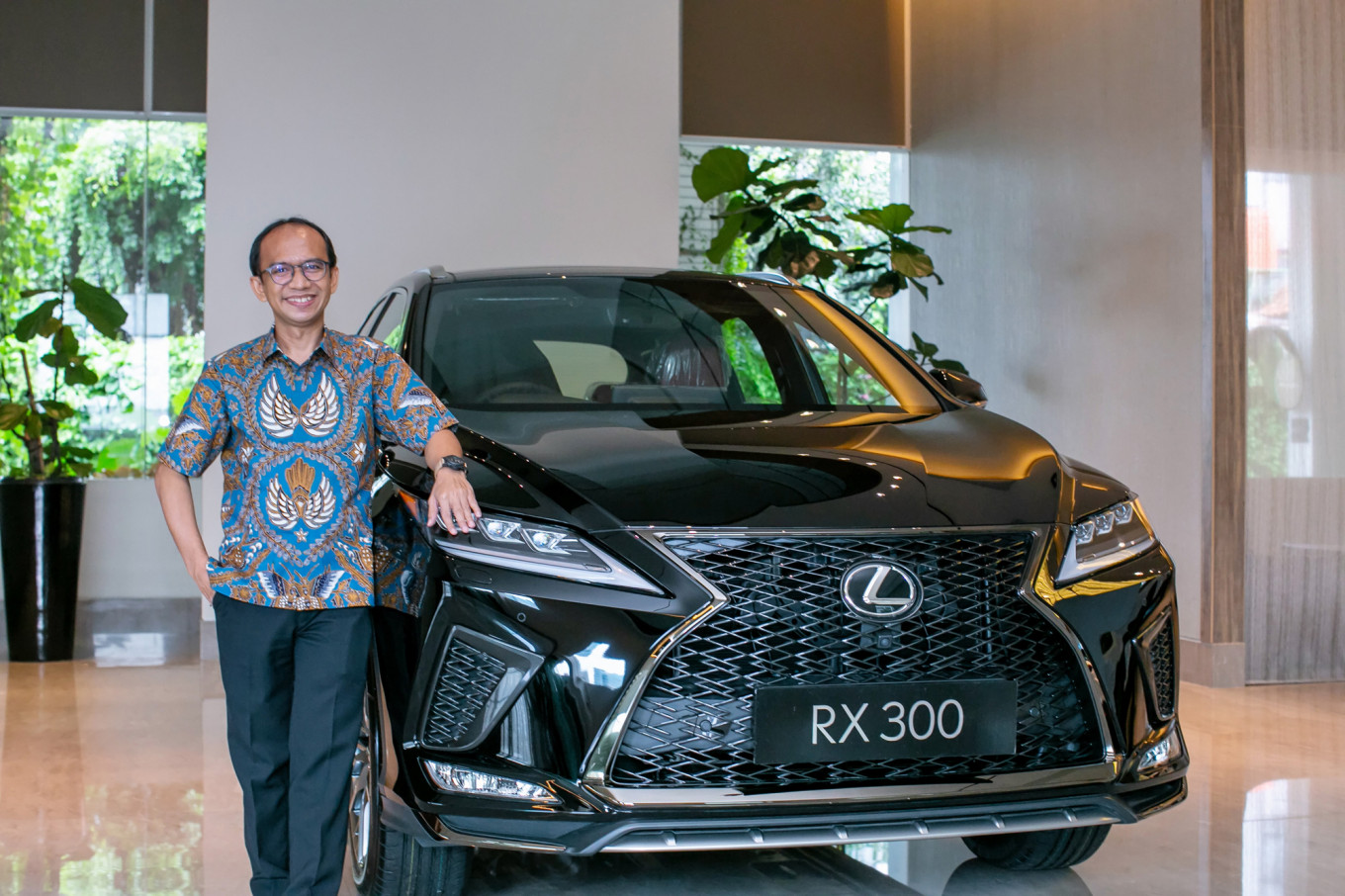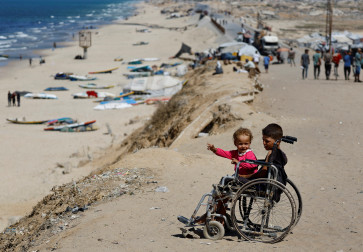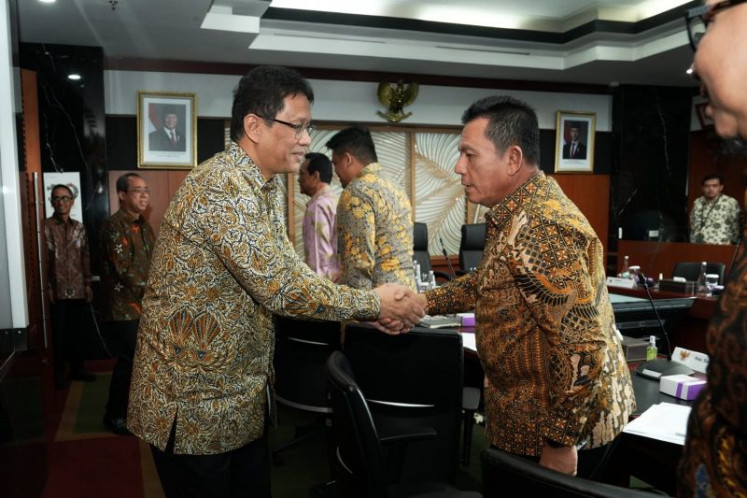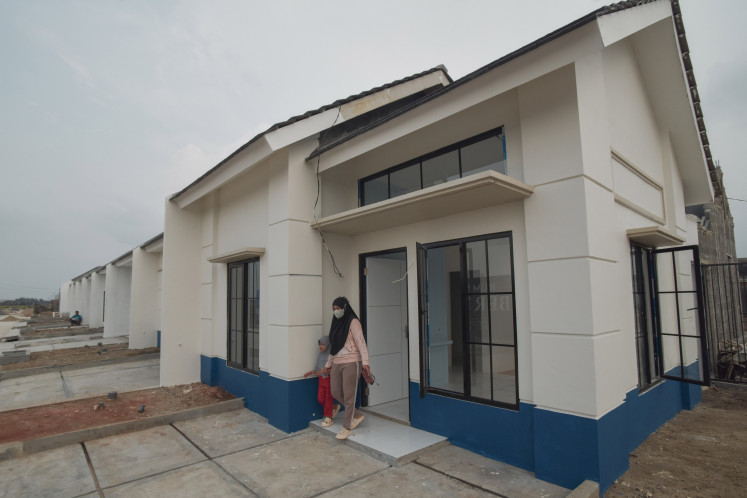Popular Reads
Top Results
Can't find what you're looking for?
View all search resultsPopular Reads
Top Results
Can't find what you're looking for?
View all search resultsLexus: A luxury state of mind
When it comes to luxury goods, having the finest materials and the highest standards is of course a given.
Change text size
Gift Premium Articles
to Anyone
W
hen it comes to luxury goods, having the finest materials and the highest standards is of course a given, but does luxury end there?
Mostly, the answer is no.
Anyone who has been lucky enough to partake in the luxury experience will know that the experience does not stop at the product; perhaps the client may receive a light beverage when selecting an exotic leather for an artisan handbag, a thorough yet snappy service when having a bespoke suit fitted, or a sense of community as they specify the features on a new car.
While this may vary based on brand or industry, they all share the same objective: providing a consumer-centric experience. With that being said, is consumer engagement a vital component of luxury?
Bansar Maduma, general manager of Lexus Indonesia agrees with the sentiment.
“When Lexus was founded by Eiji Toyoda in the United States, they were customer-driven in their introduction. As a luxury brand, the company must be in touch with the customers’ expectations and daily lives. This is what has guided every step Lexus takes, including in Indonesia,” he said.
One would only need to step into a Lexus Gallery – what the company calls its dealerships – to understand. From the moment they step inside, all five senses are stimulated; from the lightly scented fragrance in the air, the calming background music, tastefully decorated interior, culinary delights from the adjoining cafe, to of course the Lexus vehicles prominently displayed.
According to Bansar, the Japanese word “omotenashi”, meaning cordiality or hospitality, is central to Lexus’ customer service.
“It’s in how we serve the customers; like how we would greet them at home and listen to their expectations and concerns. This becomes the base of our philosophy.”
Even during the pandemic, Lexus owners receive the same level of service and care they are regularly afforded. Those wary of making the trip to the gallery for regular maintenance can opt for the Lexus Mobile Concierge Service to have their cars serviced at home, while those taking delivery of a new Lexus will also receive a tailored in-depth video explaining their car’s myriad features and technologies.
The Lexus experience also extends beyond the purchase and regular maintenance at the gallery. Frequent visitors to Mal Kelapa Gading, Central Park, and Grand Indonesia malls in Jakarta will likely notice the special parking spots dedicated to Lexus drivers - part of what it calls Lexus Parking Privilege.
Notably, the presence of Lexus in Indonesia is proof of that consumer-centric focus. Despite its origins in 1989, their entry into the Indonesian market in 2007 was based on a customer’s request to Toyota. This particular customer, having just returned from the States, was impressed by Lexus’ lineup and wished to drive one in Indonesia.
Starting from the full-size flagships LS sedan and LX sport utility vehicle (SUV), Lexus Indonesia’s lineup soon grew to incorporate other models, including the best-selling RX midsize SUV, the NX compact SUV and the LM multipurpose vehicle (MPV).
While sedans were traditionally associated with luxury, the market has shifted with the times. According to Bansar, sedans made up 80 percent of the market 10 years ago, with SUVs making up the other 20 percent. Now, sedans make up 40 percent of the market share, while SUVs grew to 50 percent with the other 10 percent made up of MPVs.
“Back then, SUVs had this ‘boxy’ kind of image to them, leaning more toward ‘tough’ rather than ‘urban’. As SUVs have changed, customers are more accepting, so our SUV lineup also grew larger,” he said.
At the same time, the market may well be heading toward another shift. As electric vehicles (EVs) have started to gain traction in other parts of the world, Indonesians may expect more charging stations in the near future.
As it happens, Lexus Indonesia already has an all-electric vehicle in its range: the UX300e subcompact SUV. The first fully-electric Lexus model, the UX300e resembles its petrol-powered UX counterparts, retaining the iconic Lexus spindle grille and striking body lines.
Lexus itself is preparing the shift to electrification, but as the company is market-driven rather than product-driven, Lexus Indonesia took note of its consumers' worries and concerns.
“Aside from full battery electric vehicles, we also offer hybrid powertrains, as hybrids are self-charging considering the current concerns about charging station availability and range anxiety. At the same time, they also contribute to the environment due to lower emissions and fuel consumption, so we try to widen our range of hybrids,” Bansar explained, adding that in the coming year, Lexus Indonesia would increase its campaign on EVs and hybrid vehicles.
Consumer behavior has also changed as well, as Bansar noted that hybrid vehicles were increasing in popularity due to environmental concerns as well as technological improvements, in line with Lexus Indonesia’s support for carbon neutrality.
Even so, UX300e owners in Jakarta need not fret about range anxiety, as all Lexus Galleries in the capital are equipped with dedicated charging stations. Construction of additional charging stations is also ongoing in malls with Lexus Parking Privilege, with Mal Kelapa Gading receiving a faster DC charging station that allows full charging in one hour.
“This is also a response to our customers’ concerns. Our cars come with an AC charger that can be used to charge the battery at home, but even then it will take up to six and a half hours and 7,500 watts of power. With this, we alleviate their worries on charging their vehicles quickly.”
Regionally, Bansar noted that the advent of EVs would soon arrive in Indonesia, with Lexus’ own concept cars going the way of the charger. Even so, the electrified range will not stop at EVs, including hybrids and plug-in hybrids.
“Customers are now concerned about being environmentally friendly, one factor being lower emissions and fuel consumption. This can be satisfied with hybrid electric vehicles. While we observe consumer behavior and infrastructure, we also widen the range of models.
“The key is in the customer. As I stated earlier, we do not wish to be product-driven – we don’t want to sell EVs if that is not what the customer wants.”










